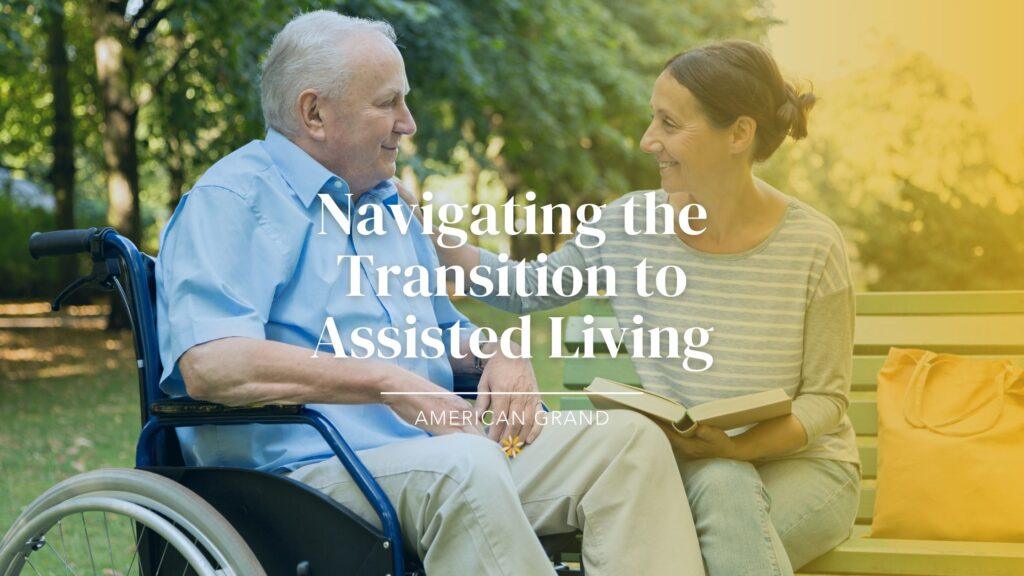Transitioning to an assisted living environment is often seen as a leap into the unknown. This significant life change can bring with it a wave of emotions – from apprehension and uncertainty to relief and anticipation. We understand that it’s much more than changing residences; it’s about adapting to a new phase of life, and that’s not always easy.
This post aims to guide you through this transition, exploring both the psychological and practical aspects of these changes. Whether you’re a senior citizen preparing for this switch, or a loved one helping to navigate this journey, we hope you’ll find solace and practical advice within these lines. Let’s take this journey together, one step at a time, as we explore the path to a smooth transition into assisted living.
Understanding the Emotional Aspects
When it comes to transitioning into assisted living, it’s completely normal to undergo a cascade of emotions. You may find the very thought overwhelming. Many people experience feelings of loss and uncertainty during this time.
Loss: For many, the sense of loss can be profound. You might grapple with the idea of leaving behind a beloved home filled with memories and coming to terms with being less independent than before. A certain proximity to family and friends might be missed too, causing a sense of loneliness. Even the sense of losing a familiar routine can be daunting.
Uncertainty: Along with loss, you might cope with fear of the unknown—an unfamiliar environment, new faces, a new routine. What will life look like in an assisted living community? While this uncertainty is natural and common, it is important not to let it deter you from the benefits this transition might bring.
Managing Emotions: While these feelings can be intense, remember that there are practical steps you can take to manage them. Seeking professional counseling can provide a safe space to express feelings and learn coping mechanisms. You might also find comfort in peer support groups—others who are going through or have navigated this change can offer empathy and personal advice to help ease your worries. Moreover, journaling your feelings and thoughts can provide a personal therapeutic outlet. Remember, acknowledging these feelings openly is the first step to managing them effectively.
Practical Aspects to Consider
While managing the emotional terrain of this transition, practical considerations come into play as well. Downsizing and organizing your belongings can seem like a monumental task, but with careful planning, it can be manageable and less stressful.
Packing Tips: Deciding what to keep and what to let go can be challenging. The key is to prioritize items that you’ll need, use often, or hold significant emotional value. Clothing, personal care items, and a few favorite books or keepsakes may top your list. Things you seldom use, or furniture that won’t fit in your new space, could be sold, donated, or passed on to loved ones.
About the New Home: Adapting to a smaller living space is much easier when you personalize it. Make your new space feel like home with cherished items like family photos, a favorite blanket, or a treasured artwork. This helps in creating a familiar and comforting environment in your new residence.
Accessing Services: Assisted living communities typically provide various services as part of their care plan. Familiarize yourself with how to access these services. This could include knowing the meal times and venues, how to arrange transportation, the schedule of activities and exercises, or the process of requesting medical help when needed. Having this information at your fingertips can significantly ease the settling-in period.
Practical tasks, when broken down into organized steps, can be more manageable than they initially seem and help you take control of the situation.
Tips on Making the Transition Smoother
Preparation is key when it comes to easing the transition to assisted living. A few simple strategic steps can help make the journey smoother and less intimidating.
Visiting the Facility: Familiarity breeds comfort. Make a point to visit the assisted living community a few times before your move. Get to know the layout, staff, and fellow residents. Understanding how the community operates and seeing friendly faces can help to alleviate anxiety and increase comfort.
Developing a Routine: Once you’ve moved in, establishing a daily routine can provide structure and familiarity. This doesn’t mean that every minute should be accounted for – but rather, having fixed times for meals, exercise, leisure activities and rest can help in quickly adapting to your new surroundings. Remember, flexibility is key and your routine can always be adapted as you settle in.
Maintaining Social Connections: Engaging in social activities is critical to reducing feelings of isolation or loneliness. Participate in communal activities, visit communal areas, and join social clubs offered by the facility. In the age of technology, staying connected with family and friends is easier than ever. Regular video calls, emails, or even handwritten letters can help maintain and strengthen connections with your loved ones.
Taking these steps to prepare for the transition can go a long way in making the new environment feel more like home.
Conclusion
Transitioning into assisted living offers a unique blend of emotional and practical challenges. It’s entirely natural to feel a sense of loss and uncertainty in the face of these changes. However, by acknowledging these emotions and seeking professional help or peer support, you can effectively manage these feelings. Practical tasks such as packing and familiarizing yourself with new routines can also be made smooth and manageable with good planning.
Remember, moving to an assisted living community in Neenah, WI, and the surrounding Fox Valley is just another chapter in life’s book and it can be as fulfilling and rewarding as any other phase of life. Stay optimistic, organized, and embrace this transition as a new adventure – a step towards secure, comfortable, and carefree living.
At American Grand Assisted Living Suites, we welcome you to share your own experiences, tips, or coping mechanisms that have eased this transition for you or your loved ones. By sharing, we learn from each other and make this journey smoother and lighter for those to come. Here’s wishing you a smooth and enjoyable transition to your new home in an assisted living community.



